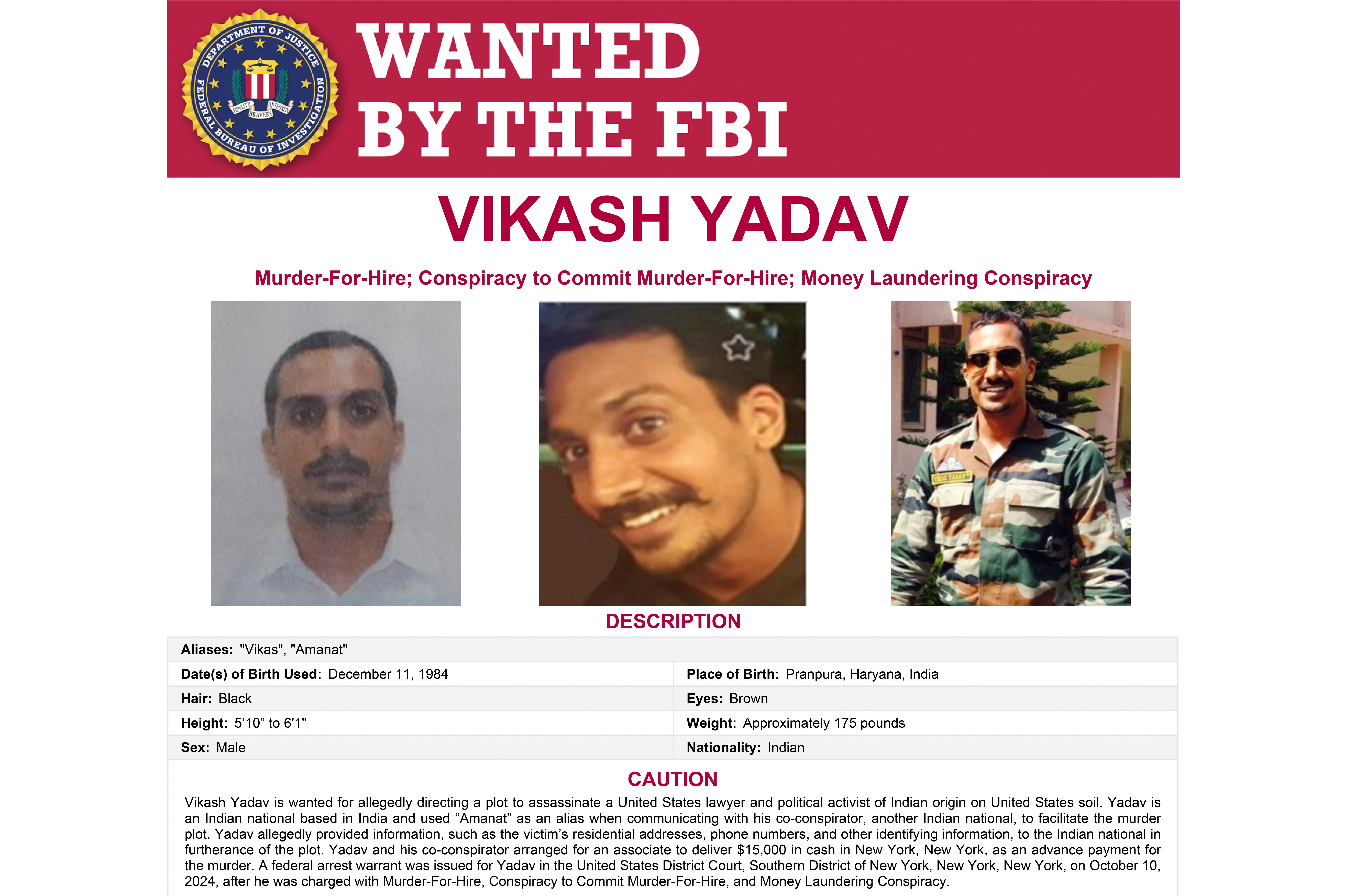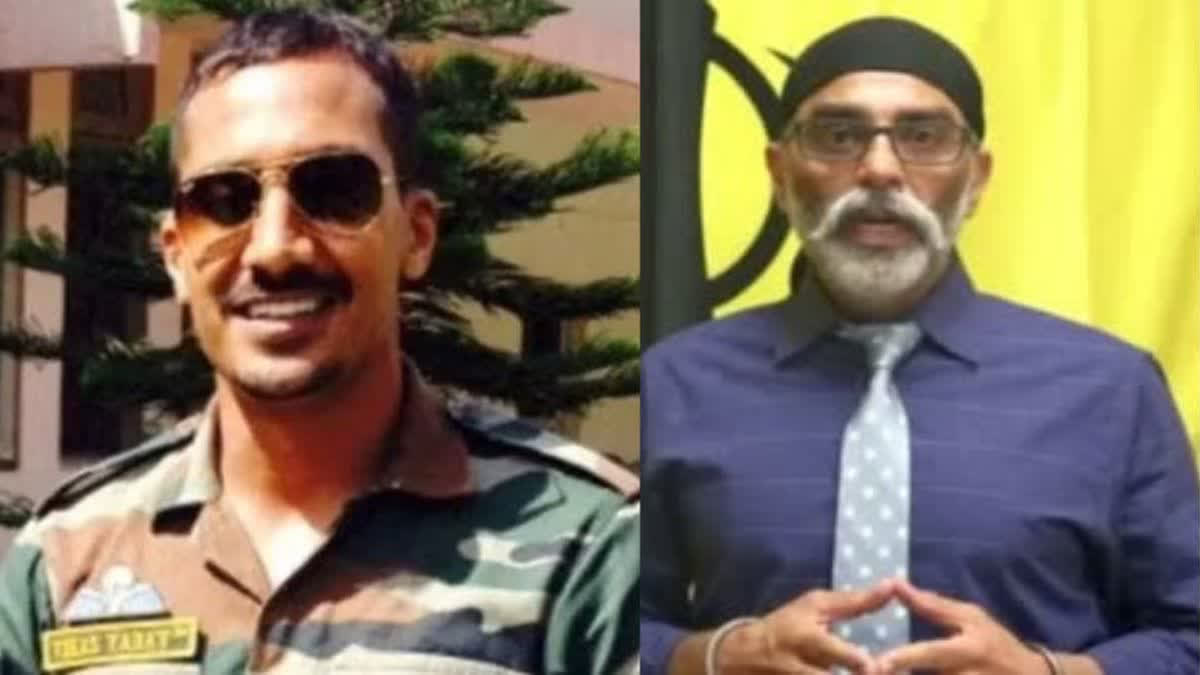New Delhi: Vikash Yadav, one of the two individuals accused of plotting to assassinate Khalistan supporter and Sikhs for Justice leader Gurpatwant Singh Pannun, is currently on the run. Both the FBI and the Delhi Police are actively searching for him in connection with this high-profile case.
The plot, which originated in India, has drawn international attention, and questions are now being raised about what would happen if Yadav is apprehended in India. This explainer seeks to answer that question.
The Legal Process in India
Supreme Court advocate Rudra Vikram Singh, in an interview with ETV Bharat, provided a clear explanation of the legal process that would unfold if Yadav is arrested in India. If Yadav is apprehended on Indian soil, he will first face legal proceedings under Indian law for any charges already registered domestically.
Yadav has been on the run since being granted regular bail in April in connection with a separate case involving kidnapping and robbery in Delhi. Both, Indian authorities and international agencies are now searching for him.
The Extradition Question
The real legal complexity arises if the United States formally requests Yadav's extradition. Singh clarified that any extradition request would activate the existing India-U.S. extradition treaty, but this process is not automatic or simple.
As per the extradition treaty between India and the U.S., the U.S. must present all the evidence and documents to the Indian government and ensure that India is satisfied with the case before extradition can proceed. Extradition would require compelling evidence, especially in serious criminal cases like the assassination plot Yadav is accused of orchestrating.
Singh also noted that the extradition process would require clear documentation and evidence. "For extradition to occur, there must be strong evidence, especially in serious cases such as the assassination of a head of state or significant criminal activity. The U.S. must present a solid case to the Indian government," he added.
Interpol’s Role
Should extradition become a primary route, the U.S. has another option through Interpol. The FBI could work with Interpol to issue an alert at international airports, making it difficult for Yadav to escape arrest. If Interpol is convinced of the seriousness of the charges and the evidence, they could release a Red Notice, which would allow Yadav to be arrested in any country where he travels.
This would significantly raise the stakes for Yadav, limiting his mobility and making it easier for him to be apprehended, even outside India or the U.S. However, the extradition process would still require a careful and thorough legal review, as Singh pointed out, noting that "extradition is not an easy or immediate process."
The Controversial Plot
The charges against Yadav are severe. According to U.S. authorities, he is accused of masterminding an assassination plot against Gurpatwant Singh Pannun, a prominent figure in the Khalistan movement, which advocates for an independent Sikh state in India.
The U.S. Justice Department has charged Yadav with murder-for-hire, alleging that he orchestrated the plot from India. Prosecutors believe this plot was part of a larger plan, potentially leading to other politically motivated murders in the United States and Canada.

While Yadav is yet to face trial, the allegations against him have sent shockwaves across diplomatic and political circles. Former Indian High Commissioner Sanjay Kumar Verma commented on the situation in a recent interview, noting, "An indictment is not a conviction."
"It will follow its judicial process," he added. While Yadav is currently being hunted by law enforcement agencies, his guilt will ultimately be determined in court.
The Khalistan Connection
The case also highlights the ongoing tension surrounding the Khalistan movement, which has long sought to establish a separate Sikh state.
Gurpatwant Singh Pannun, the target of the assassination plot, is one of the most vocal proponents of this movement. His involvement in advocating for Khalistan has made him a controversial figure, both in India and abroad. The conspiracy to murder Pannun has drawn attention to the broader political motives that may be at play.
If Vikash Yadav is arrested in India, he will first face the law for his domestic charges, but the potential for extradition to the United States looms large. Whether through extradition or international alerts from Interpol, Yadav’s path to justice will likely be fraught with legal hurdles, but his alleged role in the assassination plot ensures that this is a case the world will be watching closely.
Read More:



